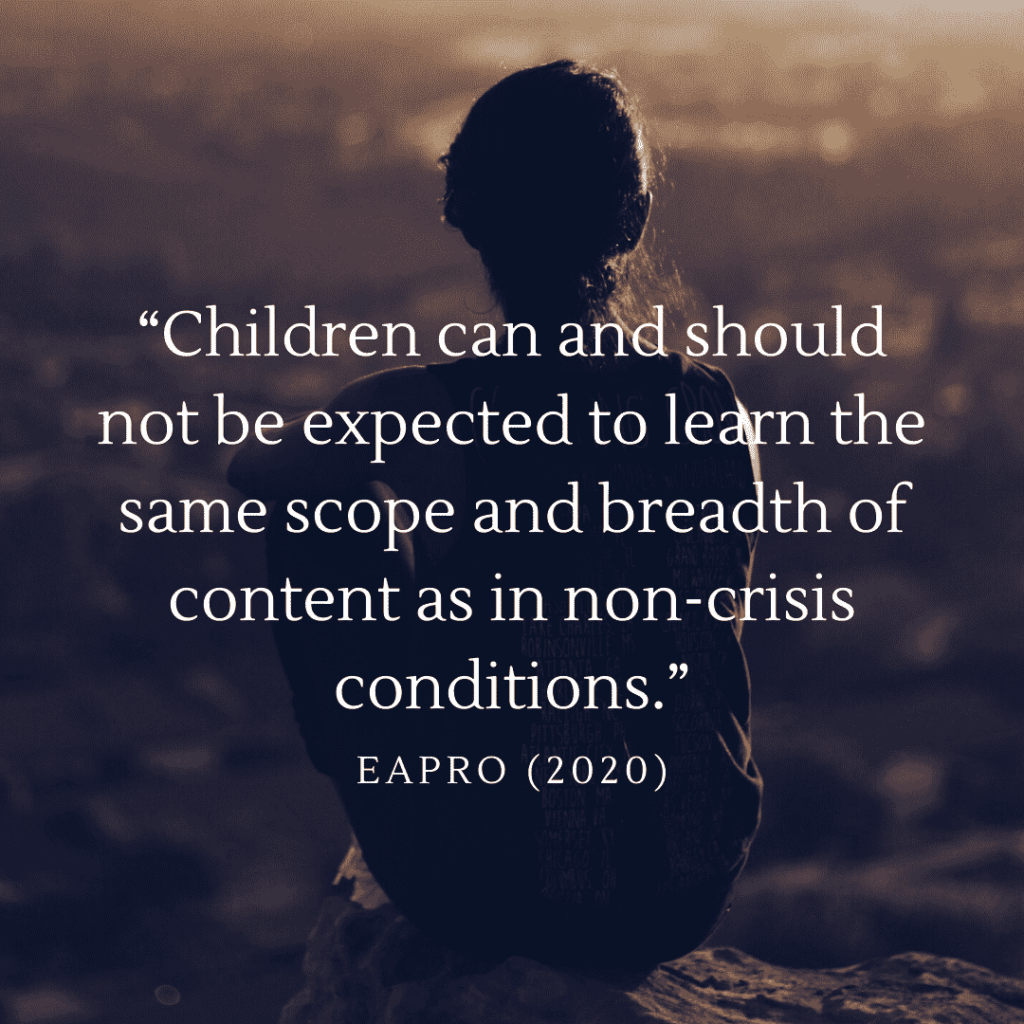
The transition to distance learning in the school year 2020-2021 has been perceived as rushed and rocky despite large-scale endeavors to prepare the school, teachers, learners, and their families for the new learning delivery modalities. Teachers scrambled to figure out how to weigh the need to be flexible with learners’ participation against the desire to provide clear expectations and engage students in high-quality learning. Indeed, the greatest challenge is assessing and monitoring whether learning takes place, particularly among the disadvantaged learners.
Modular distance learning and Television or radio-based instruction are one-directional interfaces that do not offer teachers opportunities to assess immediately and correct students’ learning pathways. When students lack regular feedback from teachers, they may fail to maintain their current learning levels and struggle to develop new knowledge and skills through self-learning, as required.
Parents are compelled to play an active role in the distance learning process. However, there are unavoidable challenges to ensure their involvement as learning facilitators. Often, children are left to study on their own because parents need to attend to their jobs. More so, the lack of education also hinders some parents from guiding their children effectively. Some parents can only teach a portion of the module, the part that they only understand. Parents likewise have difficulty spending most of their time helping their children navigate through these new modalities, working with them on tasks, and explaining the content. For the sake of compliance to the deadline of submission, it has been observed that parents are the ones who answer the exercises and activities in the module, leaving their children not learning the competencies. For these reasons, parenting education and counseling should be prioritized by the schools during the COVID-19 crisis for the well-being, preservation of learning motivation, and safety of their children, going beyond their necessary involvement in the learning and assessment processes. The conduct of a one-time parent orientation is not sufficient. It is worth considering the kinds of information, support, and or training to parents that this may require, the manner in how this support can be provided, and the manner of implementation to include hard-to-reach families.
To measure the extent to which the learners have mastered the essential learning competencies, summative assessments in the form of written works and performance tasks are prioritized for the school year 2020-2021 as bases for computing grades. Even if the quarterly assessments will not be administered (DepEd Order 31, s. 2020), this policy may be seen as merely reverting to the old grading system, in part because of the infrastructure that depends on those grades our educational leaders failed to adjust in time of pandemic: Learners’ Progress Report Cards (SF 9) need to be prepared for SHS graduates for college admissions. The numerical grade is likewise crucial in determining access to specialized programs or qualification to scholarships. But how do we ensure the credibility of these assessment data during distance learning?
Feedback from formative assessments is a means of improving student work and motivating learning, and it can be challenging to implement in a distance learning context. We should be reminded that learners cannot and should not be expected to learn and progress across the intended curriculum through self-learning methods alone with few or no interactions from teachers. Some teachers who acknowledge their limitations due to equity concerns and risks associated with providing constructive feedback are improvising their grading system to avoid failing marks. Some teachers separate non-academic factors like behavior, punctuality, and attendance from whether they have mastered the learning competencies. Some teachers give “reflection, revision, and reassessment” opportunities to meet the performance standards. While others give students more than one chance to show they are demonstrating mastery, some teachers with more than 250 learners to monitor may be tempted to choose not to bother themselves with such an additional workload of giving second chances. They will instead set their lowest grade as 75. Some may still be proposing a “pass/fail system” and/or introducing “incompletes” at the end of every grading period. Others show their disappointment and worry about sending the wrong message by loosening up their grading systems too much.
But some teachers see grades as a form of instilling discipline and maintaining their usual grade standards and professional reputation. They see failing grades as a form of a wake-up call in the hope of better performance in the next grading period. However, not all teachers who have this kind of reasoning do this for their learners’ welfare. Most of them give failing grades not because their learners haven’t learned but because they are not compliant. They are no longer after who did the written or performance outputs as long as they are submitted on time – inflexible attitudes and often biased grading practices.
![“There is not a single student in this country who is to blame for COVID-19, [yet] we know the impact is harming students in disproportionate ways.”](https://www.teacherph.com/wp-content/uploads/2021/01/Joe-Gothard-2020-Quote-1024x1024.png)
“There is not a single student in this country who is to blame for COVID-19, [yet] we know the impact is harming students in disproportionate ways.”
Joe Gothard (2020)
Distance learning, coupled with the uncertainties induced by this pandemic, is burning out many students. Students are given discussion questions, written tasks, assignments, and other performance tasks in every self-learning module, leaving students with an ever-longer list of assignments to complete. Multiply that by eight subjects and put on a list, it is overwhelming to both types of learners – diligent or procrastinators.

“Children can and should not be expected to learn the same scope and breadth of content as in non-crisis conditions.”
EAPRO (2020)
One thing we can effectively contribute, as school leaders or teachers, is to make distance learning at home better and less brain-draining, and less sad. Let us consider that children can and should not be expected to learn the same scope and breadth of content as in non-crisis conditions. Considering these, we would receive good-faith efforts from learners who faced legitimate problems filing them. This is the essence of fostering “academic ease” during the COVID-19 pandemic (OUCI Memorandum – 2020 – 307, dated October 30, 2020). Instead of being the source of our learners’ disengagement and discouragement, our reasonable expectations, flexibility, and regular feedbacks may do a lot for them. This way, making meaningful learning happen in their lives during this crisis would be truly possible.
Now, given that learning delivery may well continue entirely at home for the rest of the academic year, school heads and teachers need to carefully examine best practices for successful distance learning by rethinking what assessment and grading system plan really work for our learners, not only during COVID-19 emergency but also for possible crises we may experience in the future.
You are indeed right Ma’am. We share the same sentiment. It requires a lot of dedication and self-sacrifice to be able to reach the learners who failed to meet the desired learning competencies.